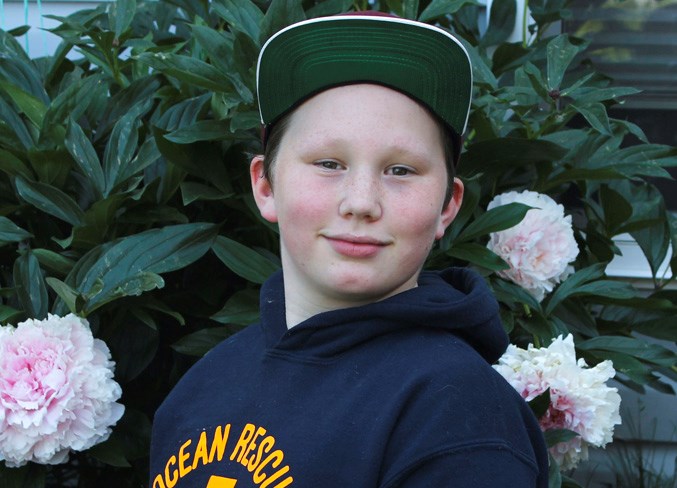Olds resident Ty Durant, 11, wants nothing more than to be a regular kid; keep up with his friends and play sports but can’t, due to a rare muscle-wasting genetic disease.
Diagnosed with spinal muscular atrophy (SMA) when he was only four, Ty has struggled to live a regular life as it primarily affects his mobility.
“I fall a lot and cannot keep up with my peers,” Ty said. “It’s hard to keep a good steady pencil grip because I have hand tremors.”
SMA has changed everything about his and his family’s lives, from their daily schedule and routine to their emotional well-being.
“Ty has had to give up living the life of ‘normal’ children as he is expected to fight against this disease daily,” said Angie Durant, mother of Ty.
Every day after school he is fatigued, but is required to do up to an hour-and-a-half of exercises in order to try and maintain strength and keep his muscles from dying.
She admits that after a period of time, the changes to their lives caused by SMA no longer hold the emotional weight they first did and are now just a part of their lives.
“I don’t know how to always protect him. I am a single mom, who works out of town. I do not have the resources for private care and I cannot get a bus stop in front of our house,” she said.
Recently, the mother and son represented the SMA community by rallying with other SMA patients in Winnipeg while the provincial and federal health ministers were meeting after being contacted by the Canadian Organization of Rare Diseases (CORD).
The reason SMA families met for their peaceful demonstration was because June 2018 marks the one-year anniversary of when Health Canada approved the first treatment drug for the disease, Spinraza. However, very few patients have been given access to this drug.
Treatment for SMA has been approved in 37 countries, but Canada isn’t one of them.
“I feel ashamed of Canada,” said Ty when asked how he felt about that fact.
Angie described the trip as great, but incredibly emotional.
“It is always wonderful to be surrounded by other SMA families who share your understanding, your pain,” she said. “The SMA community is the most amazing family you never want to be part of.”
Angie is conflicted. She is a proud Canadian but frustrated with how the government has handled the treatment of those with SMA.
The pharmaceutical company Biogen is charging US$750,000 for the first year of treatment and $375,000 for each subsequent year.
“I am disgusted that our government has decided to put a price on my child’s life, along with many others,” she said.
Alberta Health Services had this to say about the current cost of Spinraza:
“We recognize this disease can be severely limiting. We also understand that families want access to medications and therapies that provide a better quality of life and potential for improved mobility.
"As is normal process, once a drug is approved by Health Canada, it is reviewed by the Canadian Drug Expert Committee and potentially negotiated through the pan-Canadian Pharmaceutical Alliance before provinces decide how a drug may be funded.
"In the case of Spinraza, the pan-Canadian Pharmaceutical Alliance (pCPA) is currently in active negotiations with the manufacturer. Currently, Spinraza is not publicly funded in any jurisdiction in Canada.”
Ty Durant feels that it’s simply unfair that the government won’t allow the treatment to be accessible.
He compared it to children crying because they don’t have a toy that they want. He said the health minister has all the toys but won’t share them with all the other kids.



